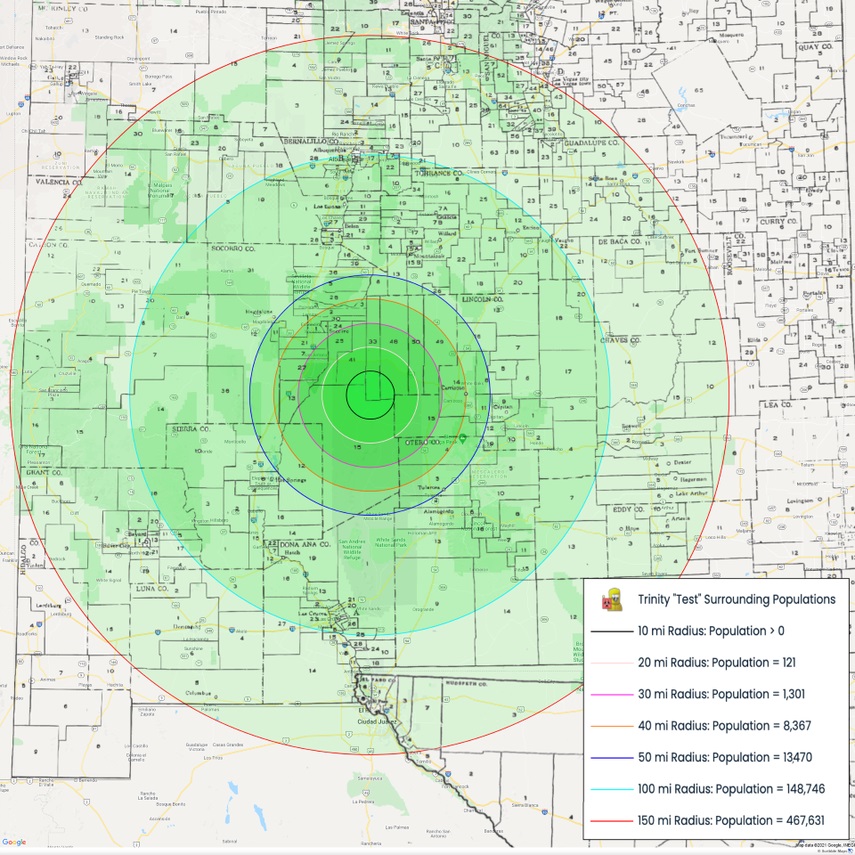
The Most Reverend John C. Wester is Archbishop of Santa Fe, New Mexico – an archdiocese that includes the Los Alamos and Sandia National Laboratories, Kirtland Air Force Base (where more than 2,000 nuclear weapons are stored), and the Trinity Site where the first nuclear bomb test took place on July 16, 1945. On January 11, 2022, Archbishop Wester released a pastoral letter entitled entitled Living in the Light of Christ’s Peace: Toward a Conversation on Nuclear Disarmament. This 52-page document, grounded in the Archbishop’s personal experiences and informed by his deep understanding of Christian theology, calls for nonviolent advocacy and action to achieve complete worldwide nuclear disarmament before nuclear weapons are again used in war.
In this interview, Jamie Newton invites Archbishop Wester to recount his personal journey of growing awareness, from his visits to memorial sites of the atomic bombings in Hiroshima and Nagasaki to the history and current realities of nuclear weapons in New Mexico. He asks the Archbishop to explain his plans for a rejuvenated peace initiative, the Catholic Church’s doctrinal evolution from acceptance of nuclear arsenals for deterrence to a call for complete nuclear disarmament, and the meaning of Pope Francis’s clear embrace of nonviolence “as a fresh, new way to live out our discipleship in the nuclear age.”
The Archbishop addresses the challenge of arguments that a just cause may imply that a war is just, and that even the use of nuclear weapons in war may be just, against his own assertion that acceptance of Jesus’s teachings on peacemaking and universal nonviolent love means There are no exceptions, no justifications for warfare, and no “just war theory.”
Reflecting on Pope Francis’s statement during a visit to Nagasaki, Japan in 2019 – Convinced as I am that a world without nuclear weapons is possible and necessary… – Archbishop Wester sets out the bases for hope that nuclear disarmament may, indeed, be possible. The interview concludes with the Archbishop’s vision of a future that goes beyond nuclear disarmament to coping with catastrophic climate change and building a new culture of justice, peace, and stewardship of the planet.
The complete text of Archbishop’s pastoral letter may be found at https://archdiosf.org/documents/2022/1/220111_ABW_Pastoral_Letter_LivingintheLightofChristsPeace_Official_Reduced.pdf
Listen below:
Tina Cordova, co-founded the Tularosa Basin Downwinders Consortium in 2005 with the late Fred Tyler. She has served as the organization’s Coordinator since then.
In this interview, Jamie Newton asks Tina Cordova to summarize the mission and history of the Tularosa Basin Downwinders Consortium. She describes examples of the extensive impacts of radiation exposure from the July 16, 1945 Trinity Test of a plutonium bomb on residents of the rural, largely agricultural surrounding area, and on their descendants – many cancers and a wide range of illnesses. Grant County residents may be surprised to know that Silver City, at 120 miles from the Trinity Site, and the rest of Grant County are included within the larger perimeter of potential radiation exposure. Downwinders affected by the Trinity Test and the uranium and weapons industries of New Mexico have never been included within the coverage provided by RECA, the Radiation Exposure Compensation Act. Educating and advocating for that coverage is central to the mission of the Tularosa Basin Downwinders Consortium.
Listen below:
Journalist Elva K. Österreich is Editor of Desert Exposure and a writer for the Las Cruces Bulletin. Her book, The Manhattan Project Trinity Test: Witnessing the Bomb in New Mexico, published in November 2021, brings together accounts of people who lived and worked in the area surrounding the July 16, 1945 Trinity Test that launched the nuclear age.
In this interview, Jamie Newton invites Elva Österreich to reflect on her experiences and motivation that led to publication of her book, and on what she learned personally from the project. He asks her to characterize the observations and reactions of physicist Richard Feynman and others who were engaged with the Manhattan Project. She then recounts some of the experiences of local people whose stories are featured in her book – a woman who watched the explosion as a child with her large family from the banks of the Rio Grande, another whose teenage brother was back from the war with an injury and believed the blast meant that the Japanese had attacked the US, and more. Finally, Elva Österreich comments on what it means to live downwind from the Trinity site.
Written by: Doug Snyder
Similar posts
Civil Discourse / Senator Martin Heinrich – 14 November 2018
In this installment of Civil Discourse, creator and host Jamie Newton interviewed Senator Martin Heinrich (D-NM) on 14 November 2018 following the midterm elections. This short interview covered two major topics: Democratic values and institutions, and secure elections… How fares the republic? Jamie asked Senator Heinrich to reflect on the 2018 […]
today30 November 2018
Gila Mimbres Community Radio KURU 89.1 FM – 519 B North Bullard Street Silver City, NM 88061


